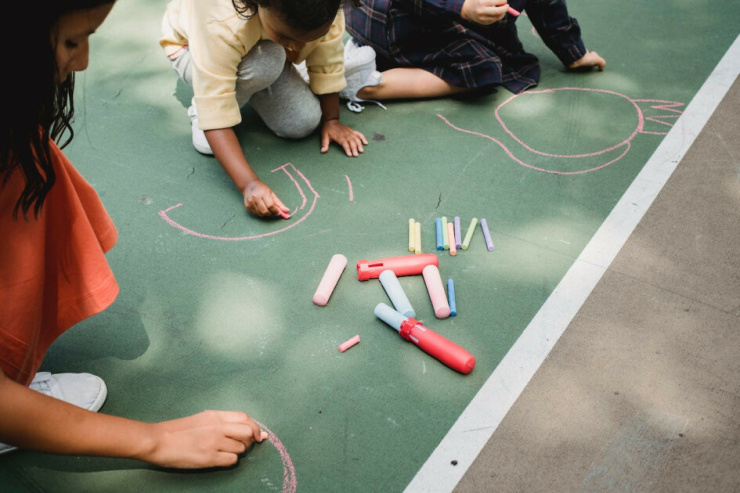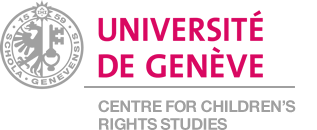CREAN Conference 2024
Collaborative Research in Children’s Rights
Fostering Dialogue Between Academia and Society

Rationale
Since the field’s emergence, many research projects in children’s rights studies have been set up as a result of intensive collaborations between researchers with civil society and governmental actors. Besides slowly gaining credentials as an academic field of interest, including the development of more and more sophisticated theoretical frameworks, innovative methodological approaches and critical perspectives, the social relevance of the collaborative research projects undertaken in children’s rights can explain the enduring success of children’s rights studies within the university. Examples of collaborative research include studies undertaken in collaboration with governmental agencies, including national monitoring bodies or children’s ombuds offices, with a wide range of UN entities such as UNICEF, the World Health Organization or the Committee on the Rights of the Child as well as with a broad range of national and international civil society actors.
During its plenary sessions, the 2024 CREAN Conference wishes to engage with the design, research questions, involved actors, funding and impact of the different ways in which collaborative research has been undertaken. We propose using ‘Collaborative research’ as all-encompassing term that designates those research projects that have been set up to foster dialogue between academia and society and form part of the province of knowledge brokering. After looking at the possible definitions of collaborative research, including but not limited to action-research, policy oriented research, applied research, cooperative research, bottom-up research, translational research, participatory research or citizen science, we will present and discuss several examples of research in children’s rights that has been developed by academic actors together with civil society and governmental partners. What are the strengths and weaknesses of this kind of research? What is the relation between solution oriented and curiosity driven research? How can collaborative research invigorate academic teaching, and vice versa? What are the differences and similarities between collaborative research, science communication, outreach efforts and continuous education?
In addition, several sessions are scheduled that are devoted to the presentation and discussion of education and research activities in the broad field of children’s rights studies. During a poster session, CREAN members will present their academic teaching activities in children’s rights, including at bachelor and master level, elective courses, summer schools or continuous education programmes. During parallel sessions, we will discuss ongoing projects led by Ph.D. researchers, early career researchers and established researchers, offering an opportunity to assess the diverse and rigorous work currently being conducted in the interdisciplinary field of children’s rights and childhood studies.
Audience
This conference, which is part of the activities developed by the Children’s Rights European Academic Network (CREAN), is open for CREAN members as well as well as for other interested participants. We particularly invite policy-makers, staff members of NGOs, international organizations and researchers and teachers who work on themes related to childhood, children’s rights, human rights studies and cognate academic fields.
Call for posters and papers
You can send in proposals for a presentation during one or both of the following sessions:
1/Poster Session: Children’s Rights in Higher Education
Within the scope of this conference, we invite contributors to participate in the Poster Session dedicated to "Children’s Rights in Higher Education." This session aims to showcase educational initiatives, teaching programmes, modules, summer classes, PhD schools, and optional courses that pertain to children's rights. Participants are encouraged to bring posters and other materials that will be displayed on designated tables, providing an opportunity to present their offerings.
2/ Parallel Sessions: Current Children’s Rights Research
We welcome submissions for the parallel sessions dedicated to "Current Children’s Rights Research." This is an opportunity to highlight your ongoing, finished, and planned research projects within various academic centers and entities focused on children's rights. We encourage submissions of both individual and group abstracts related to PhD research, small-scale projects, and larger collaborative research endeavours. Proposals can include basic or fundamental research, as well as collaborative research projects in this field.
Registration
Registration is now closed.
CREAN Conference 2024
University of Geneva
25-26 April 2024
Program
Contact
For any queries or further information, please contact: crean@unige.ch
This is the 2024 Conference of the Children's Rights European Academic Network (CREAN). CREAN aims to further enhance the academic field of children's rights as an interdisciplinary field of studies. The network is composed of European higher education institutions that work together to support the development of education, research and outreach activities. Through its networking activities, CREAN acts as a platform for the promotion and exchange of information on scientific research and advances research projects between its members.

